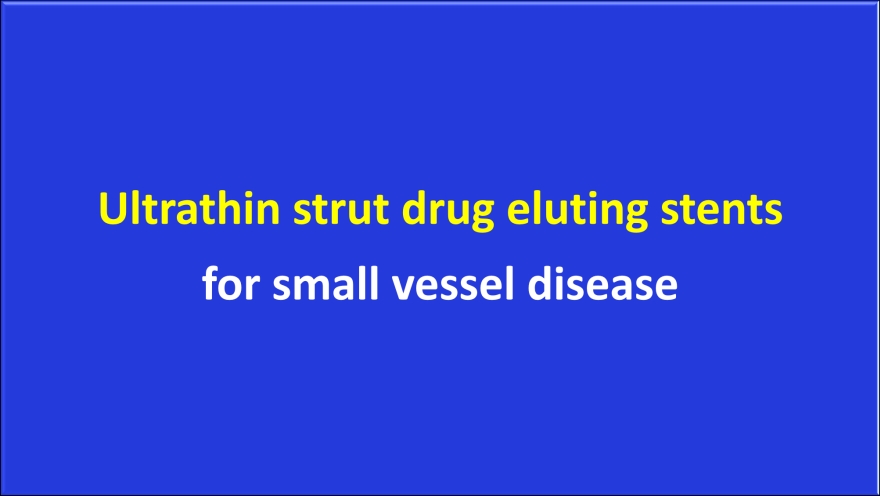Ultrathin strut drug eluting stents for small vessel disease
Ultrathin strut drug eluting stents for small vessel disease

Implantation of stents in small vessels is often avoided due to the risk of adverse events like stent thrombosis and restenosis. Ultra thin strut drug eluting stents may an option in such cases. A study published in JAMA Cardiology compared ultra thin strut stents with very thin strut stents and previous generation drug eluting stents in small vessel coronary artery disease [1]. It was a pre-specified substudy of the Comparison of Biodegradable Polymer and Durable Polymer Drug-eluting Stents in an All Comers Population (BIO-RESORT) trial. The types of stents used were ultrathin strut sirolimus eluting stents, very thin strut everolimus eluting stents, or previous generation thin strut zotarolimus eluting stents.
Of the 3514 all-comer BIO-RESORT trial participants, 1506 patients with treatment in at least 1 small vessel lesion with reference vessel diameter less than 2.5 mm were included in this pre specified analysis. Target lesion failure at 3 year follow up and composite of cardiac death, target vessel related myocardial infarction or target lesion revascularization were analysed. It was concluded that in patients stented in small coronary vessels had fewer repeat revascularizations if treated with ultrathin strut sirolimus eluting stents when compared with previous generation thin strut zotarolimus eluting stents.
Reference
- Buiten RA, Ploumen EH, Zocca P, Doggen CJM, van der Heijden LC, Kok MM, Danse PW, Schotborgh CE, Scholte M, de Man FHAF, Linssen GCM, von Birgelen C. Outcomes in Patients Treated With Thin-Strut, Very Thin-Strut, or Ultrathin-Strut Drug-Eluting Stents in Small Coronary Vessels: A Prespecified Analysis of the Randomized BIO-RESORT Trial. JAMA Cardiol. 2019 May 21. doi: 10.1001/jamacardio.2019.1776. [Epub ahead of print]

